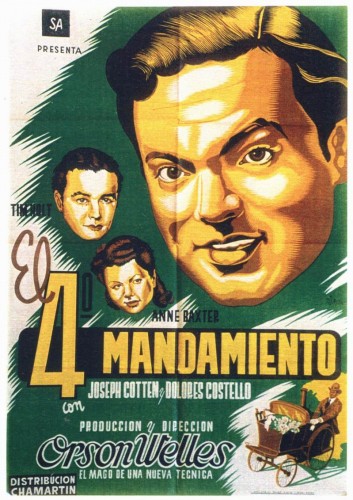
EPISODE 158: Changing Social Conditions in Indianapolis
 Credible hope — hope that works — something to dispel the advancing clouds of agnosticism. Those clouds really do exist for people, especially as life begins to flummox them. Combined with alcohol, they’ll do you in.
Credible hope — hope that works — something to dispel the advancing clouds of agnosticism. Those clouds really do exist for people, especially as life begins to flummox them. Combined with alcohol, they’ll do you in.
Booth Tarkington found a gem of hope at the end of his novel The Magnificent Ambersons. Later that novel became a famous movie. Though they left out the game-changer scene! Did you know that at the heart of that story, there is a supernatural intervention? It’s not only credible but it succeeds.
Just like John Galsworthy’s astral moment in his last novel, which is called One More River. There, too, there is a surprise from Beyond. I’ll bet writing that scene, which is supposed to take place on the Monday following New Year’s Day 1932, surprised the author. How could his hands have composed such a scene? Yet it’s almost the last thing he wrote.
The music for this cast features wonderful Rockpile (1980); and not quite so wonderful, tho’ really great: The Buckinghams (1967).
EPISODE 159: The Happiest Actual Life
Are there any happy endings? Really. Or do you just end up in a little room somewhere — fortunate you if you don’t have to share it — with a photo on the window sill of your favorite nephew or your (blasted neglectful) son? (They were taken for a church directory once, somewhere.)
That is actually how most people’s lives end, the people, I mean, who don’t die young. I can ratify that on the basis of 35 years’ parish ministry. It is how most people’s lives end.
It’s therefore interesting that Booth Tarkington wrote that the non-Hollywood endings to his novels were actually happy endings in truth, because his sombre (but not despairing) plot resolutions were “no more tragic than almost the happiest actual life”.
Tarkington’s novel Alice Adams (1921), which was made into an excellent movie in 1935 starring Katherine Hepburn and Fred MacMurray, is an instance of a completely falsified and falsifying person, ‘Alice Adams’, who is given her “happiest actual life”. I think God is trying to give such a life to each of us poor strugglers.
See if you don’t think so.
http://www.youtube.com/watch?v=Ji_5qsL1zXM&w=600

COMMENTS












